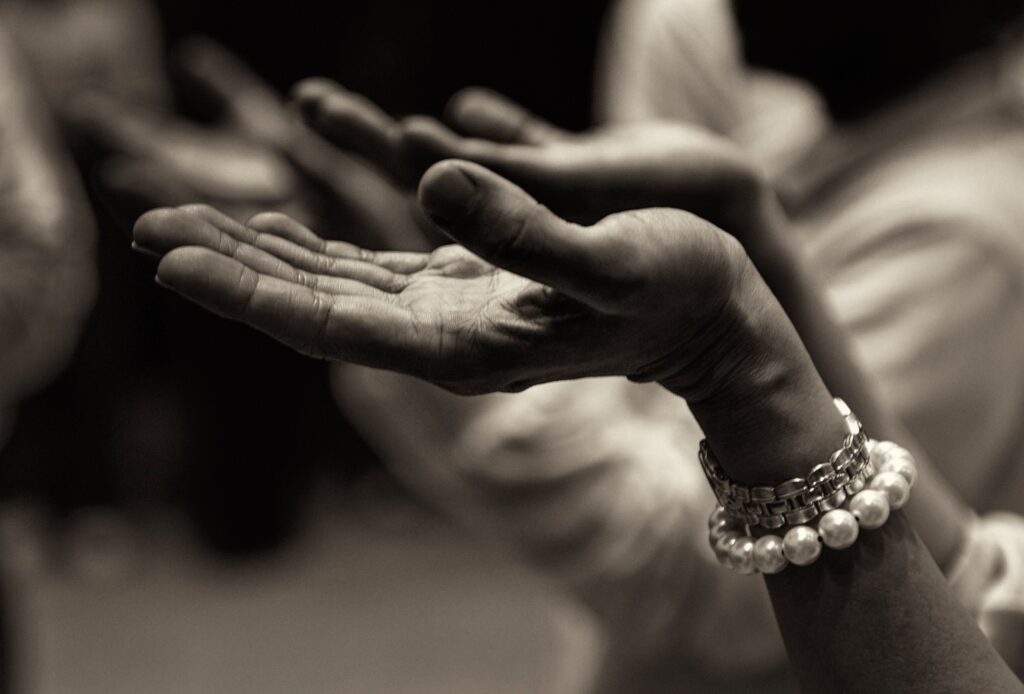The service ended and I could tell from the reaction of the congregation members that my message about God’s love for children had resonated with them.
At the end of my sermon, I had shared an illustration about the difficulties Christian children face in the Middle East. It was a pretty emotionally charged example, and I noticed one brother near the front obviously moved to tears by the work of God in a young Egyptian girl’s life.
At the end of the service, when I was speaking to several people, I saw him waiting to talk to me. When the little crowd dispersed, he stepped up to me and took out his wallet. He gave me everything in it. He then reached into his pocket, pulled out all the coins he had, and handed those to me.
He could barely speak through the tears: “I wish I had more on me to give.” I prayed for him, for the girl in Egypt, and for the church where she worshipped as he cried.
It was a precious moment I will cherish forever. He was a living example of the widow in Mark 12, who also gave everything she had.
It is well known that the widow in Mark 12, is the most celebrated giver in the New Testament. This, in stark contrast to King David, the most celebrated giver in the old Testament.
In I Chronicles 28 and 29 his generosity is documented in the fund-raising campaign to build the Temple. He gives generously his own funds as well as from the state treasury.
Mark 12, however, features the meager giving of a widow.
Jesus sat down opposite the place where the offerings were put and watched the crowd putting their money into the temple treasury. Many rich people threw in large amounts. But a poor widow came and put in two very small copper coins, worth only a few cents. Calling his disciples to him, Jesus said, "Truly I tell you, this poor widow has put more into the treasury than all the others. They all gave out of their wealth; but she, out of her poverty, put in everything-- all she had to live on." (Mk. 12:41-44 NIV)
This passage has been taught from thousands of pulpits and made the unknown widow a venerated example of sacrificial giving. In this blog, I would like to compare and contrast the Widow and King David.
Comparing and Contrasting the Gifts of the Widow and King David

The most striking contrast is in the amounts given. In David’s case he commits an enormous amount of money to the Temple building project.
In current market rates (2020), David gave approximately 6 billion USD, a sizable gift indeed. The widow, on the other hand, gave what amounted to 1/64 of a day’s wage, less than one USD. Her gift was something akin to two fifty cent pieces.
In addition to the amount given is the manner in which the gift is given. In David’s case it is done publicly with the knowledge of a large gathering of Israel’s leaders. In contrast, the widow brings her offerings among a throng of people, many of them wealthy.
Her gift was one among many and purposely portrayed by Mark as seemingly insignificant. It is these contrasts that make the comparisons all the more meaningful.
In both examples, the amount of the gift is not the focus, rather the heart of the giver. We see David also setting an example for his people as well as teaching an important lesson about giving.
After announcing what he was giving to the building project, David asked the leaders of Israel, “Who then is willing to consecrate himself this day to the Lord?” (1 Chronicles 29:5).
Noteworthy is what David did not say. He didn’t say, “Who will match my gift to the building project?” or ““We need one hundred families to give one hundred talents of gold!” David didn’t even mention the temple, the project, or the need. He simply asked who would set themselves aside for God’s work.
You see, for David, giving was a spiritual response to God that began with consecrating oneself to the Lord.
David had undoubtedly consecrated himself before he made his offering; he had already done what he was asking his people to do.
But what exactly was David asking his people to do? What did it mean to consecrate oneself to the Lord? The Hebrew word translated “consecrate” is understood to mean “to dedicate, ‘fill one’s hand with a sacrificial offering,’ and set oneself apart for service.”
Consecration was a spiritual function as significant as priestly ordination. David’s motive was not at all to draw attention to himself or to the amount he gave. David’s motive was to—by his example—encourage other leaders in Israel to worship God by giving.
Similarly, the widow is cited by Jesus for her sacrificial giving, an act of worship and utter devotion to God.
Mark makes this explicit by including the seemingly trivial information that she had two coins. He is certainly implying that she could have given one of the two coins and been a sacrificial giver.
Giving them both is an indication of extravagant worship from the heart. Jesus draws the comparison between the giving of the rich, from their plenty, and the giving of the widow who gave everything.
Another similarity is the example set by both, David intentionally and the widow by Jesus calling His disciples and citing her sacrifice. In both cases, God’s desire was to encourage the giving of His people through their examples. David’s giving led to an outpouring of generosity towards God and the Temple project.
Similarly, the widow’s giving has motivated and encouraged millions of Christ followers to give. Although left nameless in the account, she has been a role model in sacrificial giving across the centuries.
The final similarity is their common desire to worship God through giving.
It amazes me that in today’s writing and teaching on giving the recurring themes are stewardship, financial management, treasure principle, sowing and reaping, ROI, accountability, etc. all-important principles, and many of them biblical.
However, there is little of no teaching about giving as worship. This is very ironic as this is the entire basis for giving in the Bible. Giving in the Bible is an expression of our extravagant love for God.
It is a way that we can respond to God for His amazing love, goodness and kindness expressed to us each day. David and the widow understood that giving is a matter of worship.
The stand together as wealthy King and lowly widow both expressing love for God in their giving as an act of heartfelt worship.
Closing Thoughts

After attending the first two days of our fundraising training in Mexico, one pastor felt very convicted that the Holy Spirit was calling him to teach Matthew 6, “Giving: A Matter of the Heart”.
This godly man was the pastor of a small church in an extremely poor barrio outside Ensenada in Baja California. When he returned home, he asked the children’s ministry to teach Matthew 6 in their classes. The pastor wanted the entire church—from the adults hearing his sermon through the children’s evening program—to study Matthew 6.
They accepted the challenge and quickly created some wonderful lessons for their children. The pastor preached his sermon. The last worship song ended, and the service concluded.
Apparently, for at least one time in the history of humanity, adult service ended before the children’s classes did.
The pastor made his way to his child’s room where they were finishing the lesson with an activity that would drive the point home. The obvious response activity for such teaching was to actually collect an offering from the children. About fifteen kids, ages ten through twelve, were sitting around a large table.
As the little collection basket began to make its way around, the girls and boys were digging into their pockets for some change. The pastor noticed one boy at the far end of the table standing up with both pockets out and no money. He looked embarrassed as the basket came his way.
Just before the basket came by, he got a delighted look on his face, reached into his shirt pocket, took out his one stick of gum, and put it into the basket. It was all he had.
The pastor shared that story the next day, and tears flowed when we heard him say, “I believe that stick of gum was the finest offering God received anywhere in the world last night.” The little boy gave all he had.
He stands with the wealthy King and lowly widow all expressing their extravagant love for God.

